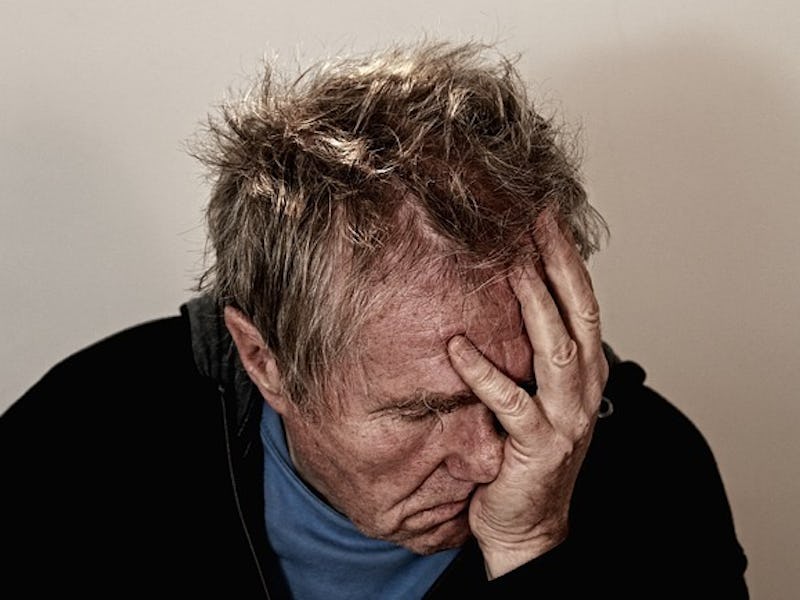Oh Great, Feeling Sad Makes You Feel Old
Read a sad story, feel 60 years old.

Feeling blue and blasé about life not only makes you feel ancient, it literally ages you, according to research published in the June issue of Psychology and Aging.
Researchers asked a group of 144 people between 40 and 80 years old a series of questions, including the age they felt at that moment. Under most circumstances, people in that age group report feeling pretty young — about 28 or 29 on average. But have them read a sad story while listening to sad music (a common, though imperfect, method for making people sad), and that mental age more than doubles to an average of about 60. The most neurotic people in the group felt the shift most intensely.
That sadness-induced feeling of age turns out to matter a lot. People who feel their decline the sharpest, and report feeling older than they really are, have worse long-term health outcomes than their younger-feeling peers. This research suggests that emotional wellbeing is core to not only maintaining a youthful glow but also being health.
That makes it important to investigate how cause and effect works when it comes to the age a person feels, which researchers term “subjective age.” Importantly, subjective age might not play any role in speeding the aging process at all — it could instead just be a symptom of faster aging, in which case fiddling with it might not help people all that much.
This study, like many other psychology experiments, relies on self-reporting, which introduces some biases. Maybe some people are just really good at detecting their slower or speedier declines, and accurately rating their effective ages as a result. Or maybe there’s something more alarming happening: People who feel old are directly or indirectly inducing their bodies to age faster and their minds to slip.
But at the very least, a good way to avoid feeling old might be to work on combating depressions. On a deeper level, it gives researchers reason to wonder whether long-term, low-grade sadness might be pushing people into decline. If feeling old is associated with bad health, and sadness makes people feel old, it’s at least worth exploring whether finding ways to keep people happy might mitigate the felt effects of aging. And that’s not a bad thing.
Abstract: A mood-induction paradigm was implemented in a sample of 144 adults covering midlife and old age (40-80 years) to investigate associations between mood and subjective age. Sad or neutral mood was induced by texts and music pieces. Subjective age was operationalized as felt age relative to chronological age. Participants receiving the sad-mood induction reported changes toward older felt ages from pre- to post-induction. Participants receiving the neutral-mood induction reported comparable levels of subjective age at pre- and post-induction. Effects were comparable across middle- and older aged participants. Results suggest that sad affective states might dampen subjective age.